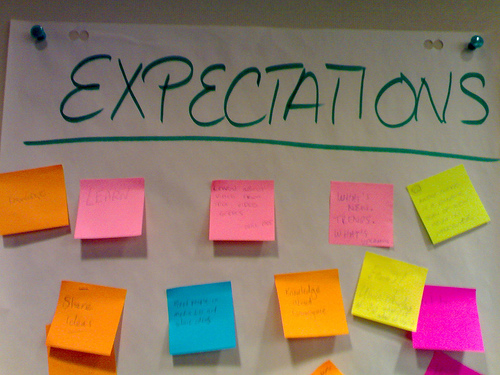Just as you hold a story about yourself, you hold assessments about others. This is a human thing – to create assessments about others as a shortcut to interaction. Notice that when you are in a leadership role, your assessments matter a great deal more than if you are merely a coworker.
The theory of expectations affects the performance of the people on your team. If you expect Sally will always make errors or that Johnny will always have a creative idea, you will tend to reinforce that belief through how you react to them. With Sally it will be “Oh, here we go again!” which will breed a mood of anxiety for both of you in your conversations. Meanwhile, you’re more likely to overlook Johnny’s issues yet leap on his every idea because “he’s so creative!”
The most powerful thing you can do as a leader is get to know your people more deeply. Learn who they are behind the superficial. Find out what makes them tick, what turns them on, what gets in their way. The more you know, the more you’ll notice that EVERY person on your team has things they do well and things at which they struggle. Then you can coach them to improve or reallocate work so you’re not expecting something they cannot deliver.
Then consciously change your story. Expect the best of everyone, according to their strengths, and prepare to be amazed at what people can deliver when they are not stuck in the story you’ve created about them.
Create Connections. Lead Well. Be Happy.
Remember, Leadership is not about a title: Anyone can be a Leader who purposely creates and holds positive stories and expectations about others to support their growth and learning.
Photo Credit: ![]() Roland Tanglao via Compfight
Roland Tanglao via Compfight

